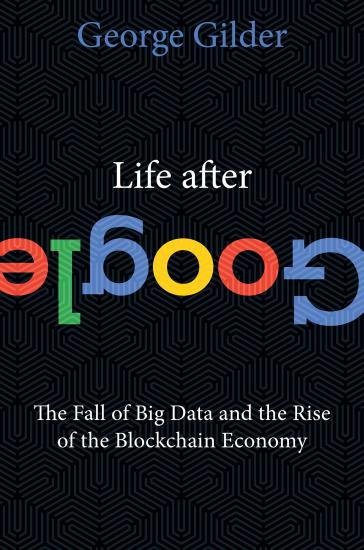
Rating: Not rated
Tags: Business & Economics, Industries, Computers & Information Technology, Lang:en
Publisher: Simon and Schuster
Added: December 25, 2020
Modified: November 5, 2021
Summary
A FINANCIAL TIMES BOOK OF THE MONTH FROM THE WALL STREET
JOURNAL: "Nothing Mr. Gilder says or writes is ever delivered
at anything less than the fullest philosophical decibel...
Mr. Gilder sounds less like a tech guru than a poet, and his
words tumble out in a romantic cascade."
“Google’s algorithms assume the world’s
future is nothing more than the next moment in a random
process. George Gilder shows how deep this assumption goes,
what motivates people to make it, and why it’s wrong:
the future depends on human action.” — Peter
Thiel, founder of PayPal and Palantir Technologies and author
of Zero to One: Notes on Startups, or How to Build the Future
The Age of Google, built on big data and machine
intelligence, has been an awesome era. But it’s coming
to an end. In Life after Google, George Gilder—the
peerless visionary of technology and culture—explains
why Silicon Valley is suffering a nervous breakdown and what
to expect as the post-Google age dawns. Google’s
astonishing ability to “search and sort” attracts
the entire world to its search engine and countless other
goodies—videos, maps, email, calendars….And
everything it offers is free, or so it seems. Instead of
paying directly, users submit to advertising. The system of
“aggregate and advertise” works—for a
while—if you control an empire of data centers, but a
market without prices strangles entrepreneurship and turns
the Internet into a wasteland of ads. The crisis is not just
economic. Even as advances in artificial intelligence induce
delusions of omnipotence and transcendence, Silicon Valley
has pretty much given up on security. The Internet firewalls
supposedly protecting all those passwords and personal
information have proved hopelessly permeable. The crisis
cannot be solved within the current computer and network
architecture. The future lies with the
“cryptocosm”—the new architecture of the
blockchain and its derivatives. Enabling cryptocurrencies
such as bitcoin and ether, NEO and Hashgraph, it will provide
the Internet a secure global payments system, ending the
aggregate-and-advertise Age of Google. Silicon Valley, long
dominated by a few giants, faces a “great
unbundling,” which will disperse computer power and
commerce and transform the economy and the Internet. Life
after Google is almost here. For fans of "Wealth and
Poverty," "Knowledge and Power," and "The Scandal of
Money."